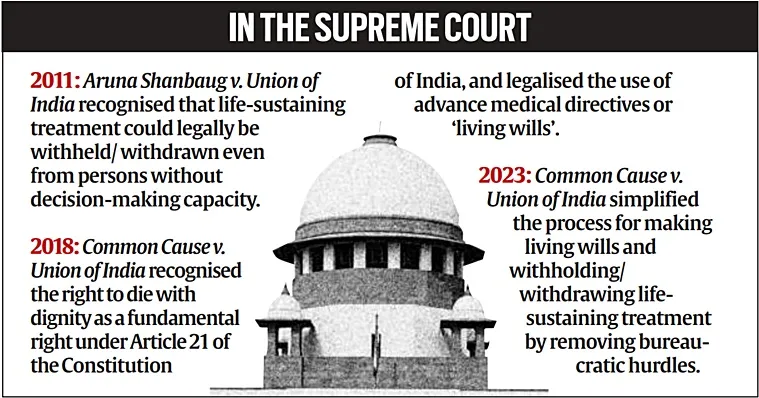Rapid Fire
Karnataka Allows Right to Die with Dignity
- 03 Feb 2025
- 2 min read
Karnataka allowed the setting up medical boards in hospitals to facilitate requests for dignified deaths.
- It has been done as per Supreme Court verdict in the Common Cause vs. Union of India Case, 2018 that upheld legal validity of passive euthanasia.
- Passive euthanasia involves withholding or stopping life-sustaining treatments, letting a person die naturally from their condition.
- The Supreme Court’s 2023 order affirms the right to die with dignity under Article 21 and eases norms for passive euthanasia.
- Supreme Court Guidelines 2023:
- Withdrawal of WLST: Primary and Secondary Medical Boards to review requests for Withdrawal of Life-Sustaining Therapy (WLST) based on living wills.
- Living Will: Living will (Advance Medical Directive) allows patients to document their treatment wishes, ensuring dignity in end-of-life decisions.
- Approval: Procedure requires approval from the treating doctor, two medical boards (three practitioners each), and the District Health Officer’s nominated practitioner.
- Consent: Medical boards’ decisions require consent from the next of kin and approval from the Judicial Magistrate of the First Class (JMFC).
- Advanced Medical Directive (AMD): AMD mandates appointing at least two individuals for healthcare decisions if the patient loses capacity.
- AMD can be executed by adults of sound mind, filed digitally or on paper, and maintained in health records.
Read More: SC Eases Norms for Passive Euthanasia





